Hawaiʻi to Receive $3.1 Million to Fight Invasive Species
Hawaiʻi will receive $3.1 million to fight invasive species like the coconut rhinoceros beetle, coffee berry borer, Rapid ʻŌhia Death, and fruit flies.
The funding announcement was made today by Rep. Tulsi Gabbard (HI-02), and was made possible through an allocation from the US Department of Agriculture’s Animal and Plant Health Inspection Service.
The funding is among 513 projects supported nationwide that aim to prevent the introduction or spread of plant pests and diseases that threaten US agriculture and the environment, as well as ensure the availability of a healthy supply of clean plant stock.
“In Hawaiʻi, invasive species like the coffee berry borer, fruit fly, and macadamia felted coccid have cost our farmers millions, and put hundreds of farms, thousands of local workers, and our agriculture industry at great risk,” said Rep. Tulsi Gabbard. “We need to provide more support to our farmers who contribute so much to our community and our economy. This funding will provide Hawaiʻi with critical resources to combat these invasive pests.”
“The University of Hawaiʻi is very pleased to hear that a new project has been funded through USDA-APHIS on the management of the coffee berry borer in Hawaiʻi and Puerto Rico,” said Ray Carruthers, Specialist at the University of Hawaiʻi College of Tropical Agriculture and Human Resources. “The main thrust of this effect will be to coordinate control efforts with on-going Federal, State and local projects on CBB management, along with the additional development of new insect biological control technologies. We feel that developing, testing and the eventual use of insect parasitoids will be a key for long-term sustainable management of the CBB in both Hawaiʻi and Puerto Rico.”
Rep. Gabbard introduced the Areawide Integrated Pest Management Act and the Macadamia Tree Health Initiative in the 114th Congress to fight invasive species in Hawaiʻi and across the United States. In August, Rep. Gabbard conducted an agriculture tour on Hawaiʻi Island where she met with local agriculture professionals and researchers about invasive speciesi.
Today’s announcement includes the following funding for projects in Hawaiʻi:
· $87,771 for emerging diseases, viral spillover, and the risk to agricultural pollinators (Academia)
· $265,811 for the USDA Compendium of Fruit Fly Host Information (CoFFHI) (Academia)
· $27,600 for the National Survey of Honey Bee Pests and Diseases in Hawaiʻi (State Government)
· $148,000 for the Palm Commodity Survey (Academia)
· $165,500 for Hawaiʻi Pre-Clearance X-ray Support (APHIS)
· $260,000 for Genomic approaches to fruit fly exclusion and pathway analysis (year 3) (Academia)
· $303,000 for Genomic approaches to fruit fly exclusion and pathway analysis (year 3) (Non-APHIS-Federal)
· $42,090 for Little Fire Ant Education for Nursery Supply Stores (Academia)
· $40,995 for Integrated and Sustainable Approach to Manage New Invasive Pests of Ficus Trees in Hawaiʻi’s Urban Landscapes – Year 2 (Academia)
· $41,000 for Activators and Attractants for Giant African Snail (Academia)
· $120,000 for Response to Rapid Ohia Death, a disease threatening forests (State Government)
· $125,000 for Systems approach for the management of coffee berry borer in Hawaiʻi and Puerto Rico with emphasis on biological control (Academia)
· $100,000 for Systems approach for the management of coffee berry borer in Hawaiʻi and Puerto Rico with emphasis on biological control (State Government)
· $115,000 for Systems approach for the management of coffee berry borer in Hawaiʻi and Puerto Rico with emphasis on biological control (Non-APHIS-Federal)
· $975,000 for Response to Coconut Rhinoceros Beetle in Hawaiʻi (Academia)
· $250,000 for Response to Coconut Rhinoceros Beetle in Hawaiʻi (State Government)
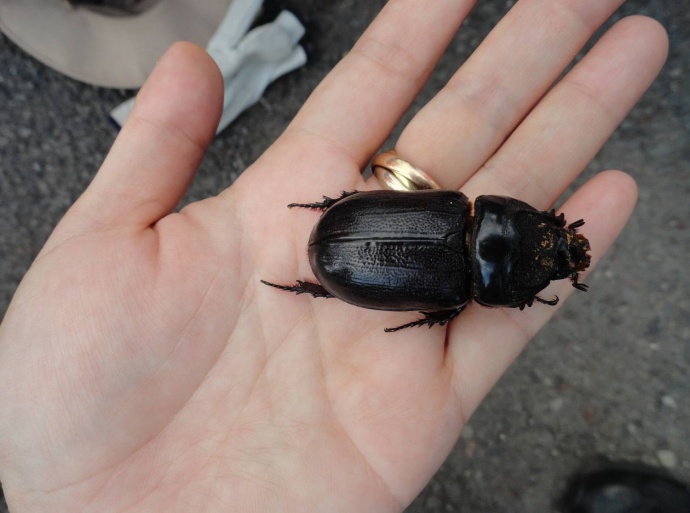
Coconut Rhinoceros Beetle. Photo courtesy, Hawaiʻi Department of Agriculture.
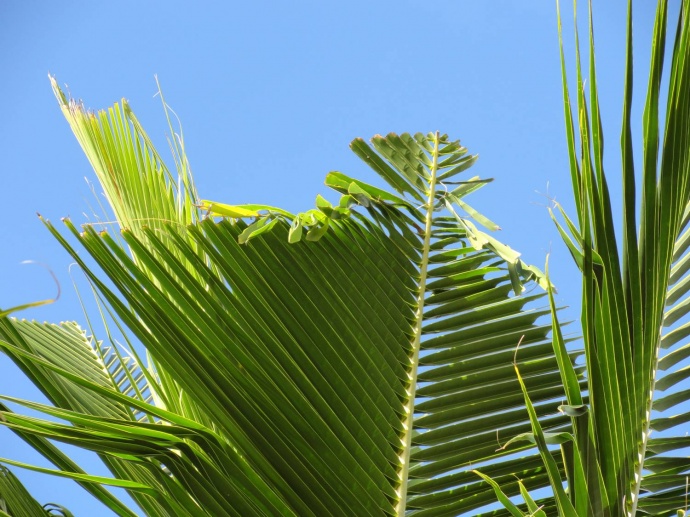
Coconut Rhinoceros Beetle feeding damage. Photo courtesy, Hawaiʻi Department of Agriculture.
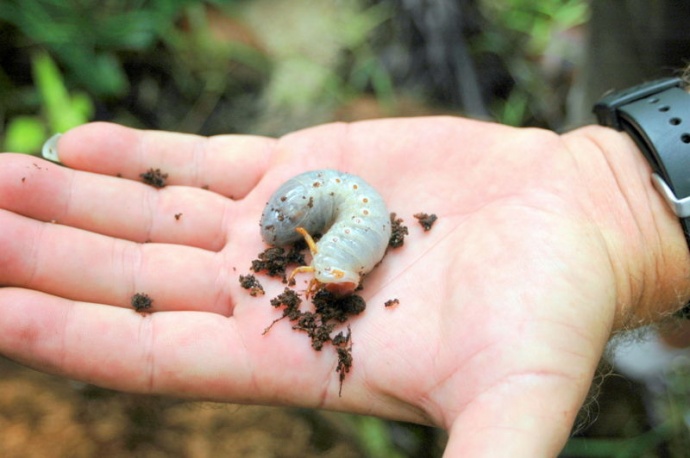
Coconut Rhinoceros Beetle Grub. Photo credit CRB IC.
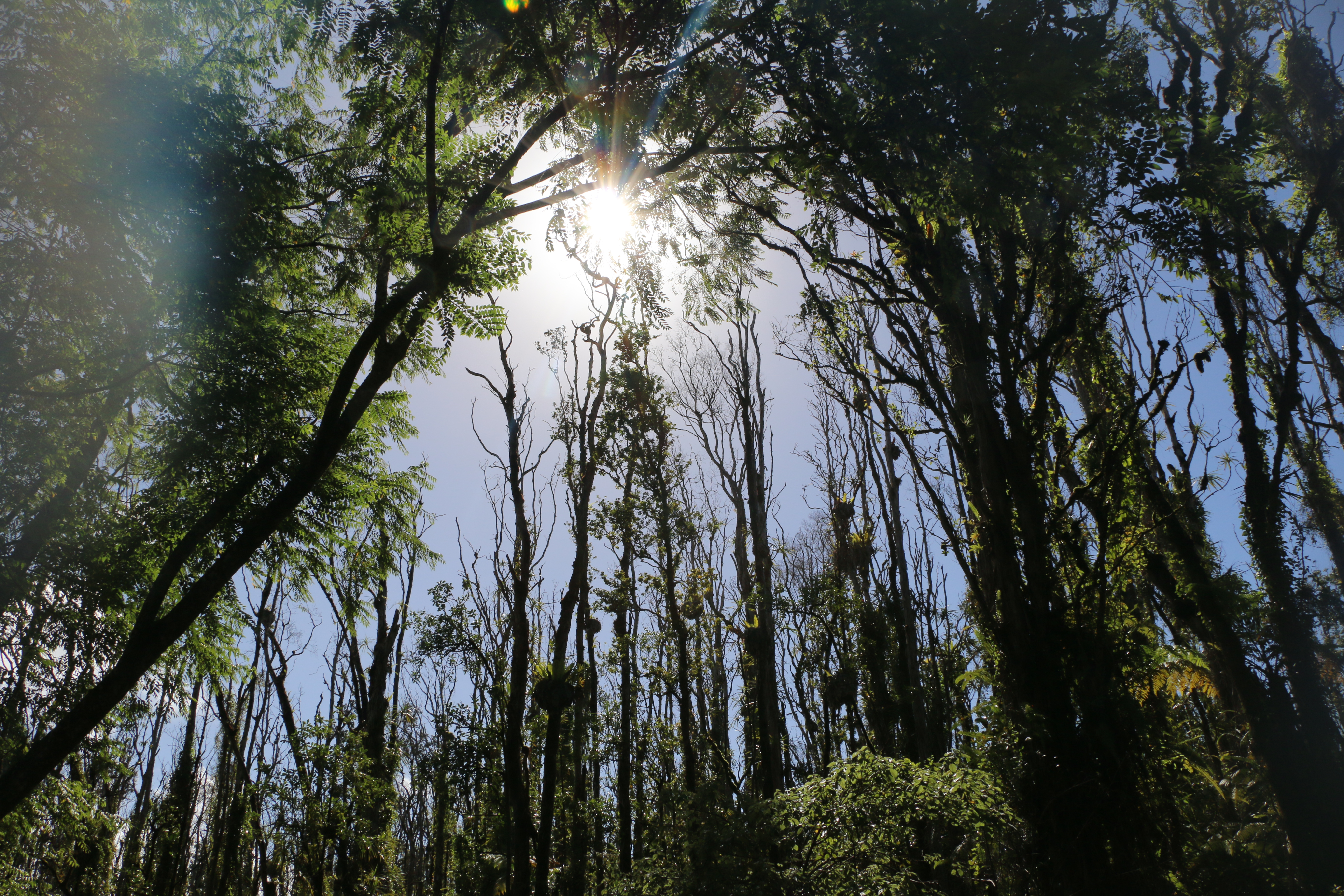
Rapid ‘Ōhi‘a Death. Photo courtesy: DLNR.
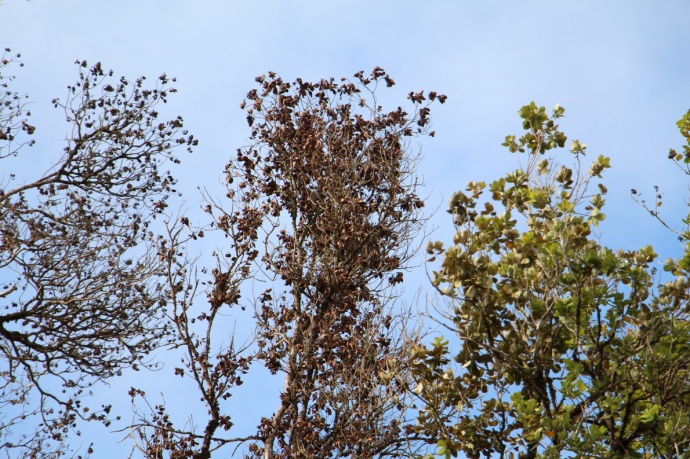
Ohia wilt. Image credit UH-CTAHR/ J. B. Friday.
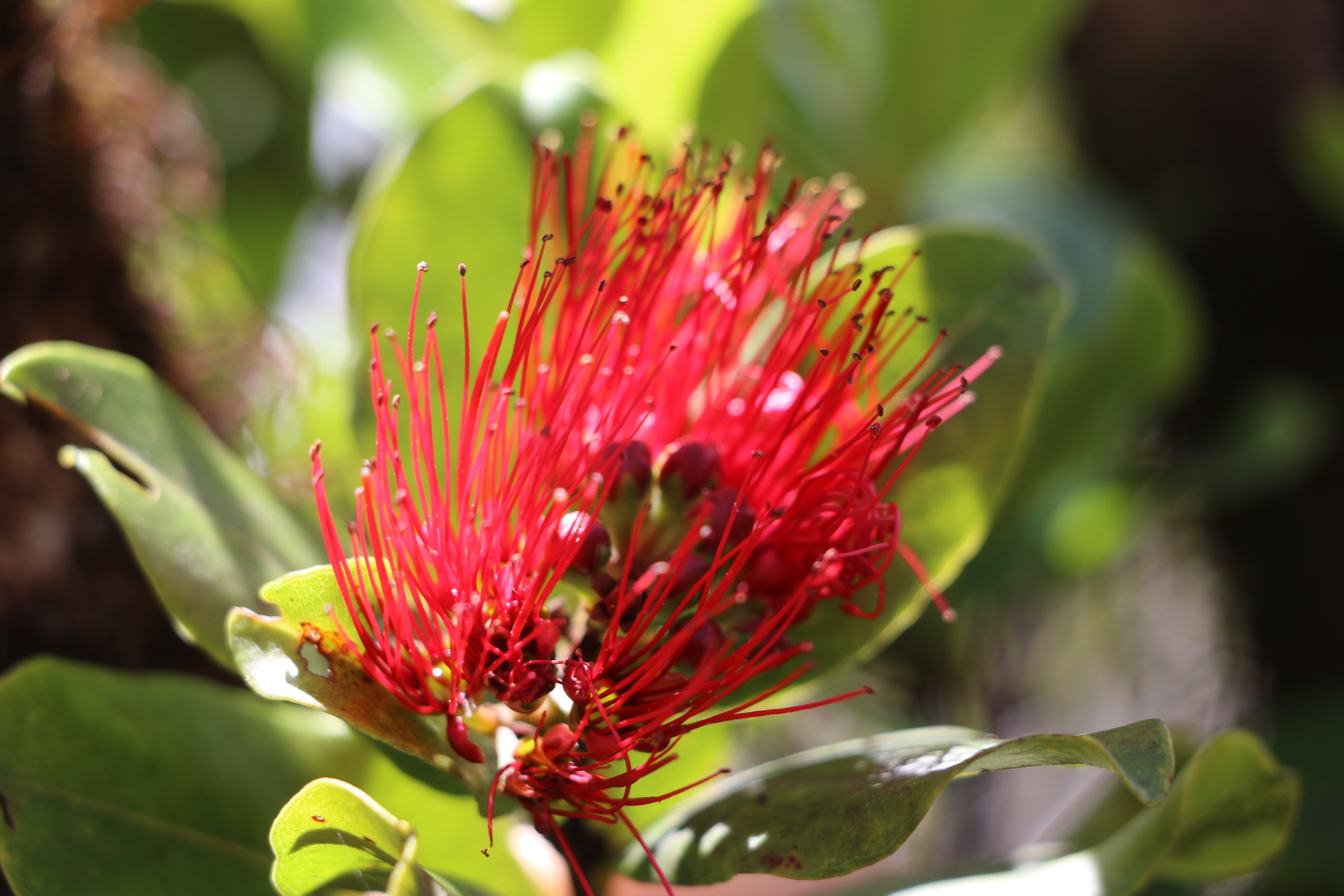
‘Ōhi’a are the backbone of our native rainforest; they feed the honeycreepers, they protect the watershed. Photo credit: DLNR.

Coffee Berry Borer. Images Couresy Hawaii State Department of Agriculture.












